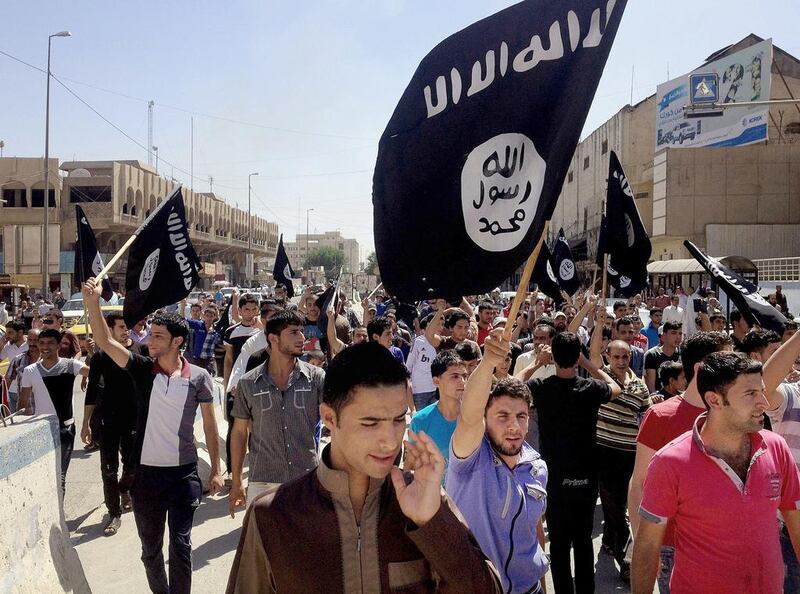Syria’s foreign minister took to the UN podium yesterday posing as a statesman, only to seek to sell the Assad brand of snake oil politics to a watching world.
Addressing the world body, Walid Al Mualem said the western and Arab alliance that is attacking ISIL in both Iraq and Syria were part of the same fight as the Assad regime. They are fighting the same enemy, fighting in the same trenches.
Al Mualem was merely fleshing out a line that has already been expressed by other analysts, journalists and even politicians.
In the same chamber earlier this week, Russia’s foreign minister Sergei Lavrov made the same point. The West, he said, should “cooperate” with Syria, as there was now an “understanding that terrorism is a much bigger threat than the continued presidency of Assad”.
But however much Russia, and others, such as Iran, wish it were the case, the mistrust and hostility between the Arab world, the West and Syria has never been about the presidency of one man: it has always been about the deaths of many Syrians.
The call, then, for the Assad regime to be included in the coalition, either as a partner or by working alongside the Syrian regime in fighting ISIL on the ground, is a false and dangerous idea.
It is morally indefensible, but also tactically dangerous. There is no solution to the ISIL crisis that involves the regime of Bashar Al Assad; bringing him in will only make things worse.
Most obviously, there is a moral component: after three long years of death and destruction, after three long years of impoverishing an entire nation and pushing millions of Syrians from their homes, working with the Assad regime would be a reward for the slaughter of civilians.
It would send a repugnant message that human life matters less than political expediency. And that message, particularly in the Middle East, would not easily be forgotten.
But working with the Assad regime is also dangerous. Because it was the Assad regime that deliberately created the conditions for ISIL to grow and thrive. With ISIL removed, there is every reason to suppose the regime would simply nurture a new extremist threat – a threat that would reach neighbouring countries.
By targeting the moderate opposition groups in Syria, the Assad regime ensured that only the most extreme groups survived.
Few examples could be as clear as that of Raqqa: since ISIL consolidated its grip over the city last year, the flag of ISIL has flown openly over their headquarters in a former government building. The Assad regime allowed it to stand, even while targeting buildings around it, only finally destroying it two weeks ago.
But with ISIL gone, the Assad regime will not be able to regain control of that territory. Rather, it is the Syrian rebels who will move back in.
ISIL, after all, was only able to take hold of Raqqa because it had already been liberated from the Syrian regime. Raqqa was the first city to fall completely out of government control in March 2013 – it was only after the rebels took over that ISIL changed their name and their focus and pushed the rebels out.
To Al Assad, having ungoverned spaces in Syria, or spaces under the control of extremists whose primary focus is not attacking the regime, will always be better than allowing the Free Syrian Army (FSA) to take control and hold an area of the country. If the regime cannot have it, it will always be better to let anyone but the FSA hold it.
That means that, without a strategy that also brings the Assad regime to an end, merely removing ISIL in Syria will not end the threat of extremism.
Witness the growth of the Khorasan group – the threat of extremism emerges from ungoverned spaces. And for the Assad regime, any ungoverned space is better than one governed by its opponents. So even if the coalition takes out ISIL, another extremist group will soon replace it – the Assad regime will see to that.
All US and Arab allies will have done is act as Assad’s gardener: clearing the weeds once they become unruly, but leaving intact the conditions for them to grow again.
The regime of Bashar Al Assad is not a saviour, a fellow fighter or an ally. Seeking to sell the world snake oil, Assad’s emissaries pretend to offer an answer. But Bashar Al Assad is the architect of the ISIL ailment: he cannot now pretend to sell the cure.
falyafai@thenational.ae
On Twitter: @FaisalAlYafai





